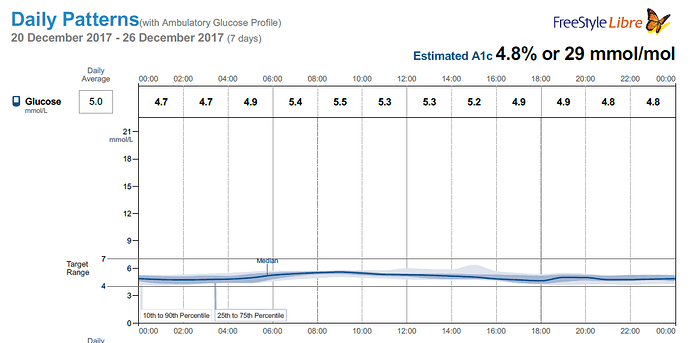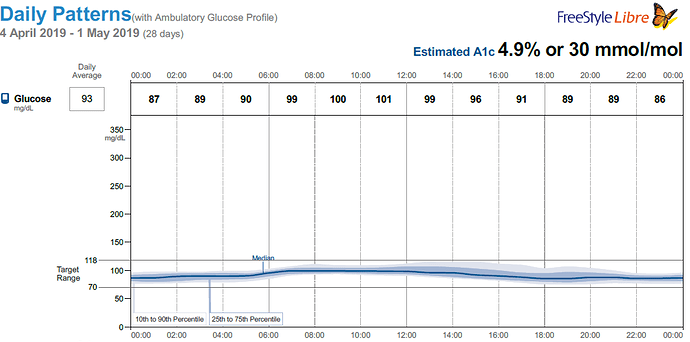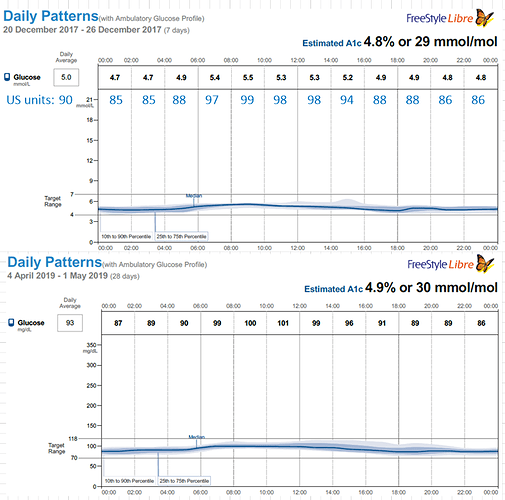Hi All,
T2 and drug free for the last eight years.
Some grousing about the dawn effect.
My blood Glucose before bed is around 95 to 105 mg/dL. It is exactly the same if I wake up by my alarm clock. If I wake naturally, it is ~20 points higher. I presume this is the dawn effect.
My last Friday’s full fast: Friday bed time 93 mg/dL, natural waking the next day 115 mg/dL. The ONLY thing consumed over the period was water and some salt. Two hours after breakfast on Saturday, I dropped 15 points. This is typical.
I am beginning to think the “Dawn Effect” is a natural part of your circadian waking cycle and I should stop fretting over it. Your take?
-T



